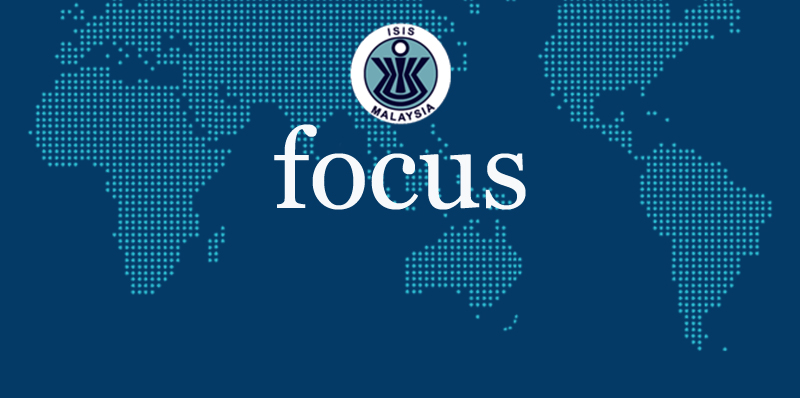Thailand has seen a lot in recent years – coups, curfews, demonstrations, violence in the streets and forced airport closures. But the second largest economy in ASEAN has encountered nothing like COVID-19, and its impact will be far reaching, beyond the immediate healthcare and economic concerns.
BY THITINAN PONGSUDHIRAK
From social distancing and heightened hygiene concerns to lockdowns and curfews, Thailand has suffered from the coronavirus pandemic like most other countries in the world.
During the peak of the pandemic in March and April 2020, there was nowhere to run, but also no need to hide. As long as people stayed away from other people as much, as far and as long as they could manage, they were supposed to be out of the virus’ way. This pandemic has also seen the large-scale movement of tourists, students, expatriates and migrant workers abroad, whom have scrambled to catch the last means of transport home before borders shut and travel came to a near halt. This has resulted in the lowest number of foreigners in any host country, an unprecedented phenomenon in modern globalised times.
Yet it has not meant globalisation has stopped or reversed, or even slowed. True, borders have come up, trade has gone down and global economic integration will be hindered dramatically. Travel and tourism will take many months to return to the numbers and patterns prior to COVID-19. But in other ways, globalisation has become lopsided, neither reversed nor stopped. Transport of all modes has been dealt a major blow, whereas communications have made huge strides to the point that it has become somewhat substitutable for transportation. Thanks to the Internet and media technologies, the virtual world is now a much bigger part of the physical world. Working remotely in place of in-person work may be a legacy after COVID-19 is brought under complete control.
After almost three months of lockdown since late March, quarantine and other stringent social distancing measures around the world, the mood is shifting and in need of policy recalibration. First, the draconian anti-virus measures appear to be working. To date, global numbers have steadied on a downside trend, while recoveries look promising.
Second, after so long under self-isolation, many have grown tired of confinement and lockdown fatigue. Third, detrimental income effects are kicking in. Those with salaries are more secure, but countless millions, who live from one pay cheque to the next or from the cash-driven informal economy in much of Southeast Asia, need their jobs back.
It is akin to extinguishing the virus by undermining the people’s livelihood, and thereby squeezing their lives. People are not just kept away from friends, jobs and other activities but they are not allowed to earn an income. Government relief money, in cases like Thailand, appears inadequate for subsistence over the months ahead. Thus, the pressure will continue to build for a partial and gradual resumption of life and livelihood, of jobs and income, while precautions like social-distancing and hand-washing remain in place. Most countries that went into lockdown would have let up, reopening and restarting parts of their economies and societies, with vigilance and precautionary procedures.
For Thailand, the coronavirus is a godsend for the government of Prime Minister Prayut Chan-ocha on the one hand and a hot potato on the other. The crisis has effectively muted dissenting voices from youth movements and civil society, and potentially whitewashed and covered up corruption scandals, such as unaccounted face masks. Previously controversial cabinet members have sat out quietly. While the Prayut government initially appeared incompetent, Thailand’s medical professionals have been thrusted into the limelight as public health technocrats, shoring up government credibility.
Yet the COVID-19 crisis has exposed Thailand’s outdated bureaucracy and sheer ineptitude of government leaders, from ministers of public health and education, right up to the Prime Minister. Subsidy schemes from a massive 1.9 trillion Baht (USD 60 billion) fiscal stabilisation package, equivalent to 12 percent of the GDP, have been mishandled, running up Thai public debt to nearly the legal limit of 60 percent of the GDP. Many Thais are upset, with their frustrations reaching back even before the pandemic hit. However, they have been kept down and at home by the virus and accompanying lockdown regulations, thus limiting any opportunities to publicly demonstrate their displeasure.
Thailand is on course for a sharp economic downturn, which will bring further hardship to many Thais. Coupled with political tension, government mismanagement and political incompetence, it is likely to lead to further social discontent and confrontation.
This crisis should be taken as an opportunity to undertake longstanding and necessary bureaucratic reforms, constitutional amendments, economic policy overhauls, education upgrading and so forth. But instead, the coronavirus is more likely to be a crisis within crises that seem unavoidable for Thailand to reach a new normal in which it can move forward again.
Thitinan Pongsudhirak is Director of the Institute of Security and International Studies, Faculty of Political Science, Chulalongkorn University, Thailand





